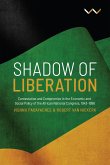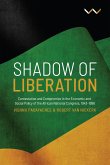
Gebundenes Buch
Contestation and Compromise in the Economic and Social Policy of the African National Congress, 1943-1996
1. Oktober 2019
Wits University Press
| Broschiertes Buch | 27,99 € | |
| eBook, ePUB | 22,95 € |

Broschiertes Buch
Contestation and Compromise in the Economic and Social Policy of the African National Congress, 1943-1996
1. Oktober 2019
Wits University Press
22,95 €
Sofort per Download lieferbar
Ähnliche Artikel

Gebundenes Buch
William K.M. Breckenridge in Fielding Hurst's First West Tennessee U.S. Cavalry
10. November 2020
McCann Publishing


Gebundenes Buch
Disaster Politics in Highland Ecuador
14. Oktober 2022
Rutgers University Press


Gebundenes Buch
Creative Media Partners, LLC

Gebundenes Buch
How the World Economic Forum Shapes Market Agendas
10. Juli 2018
Stanford University Press

Gebundenes Buch
Implications of Repealing the Combat Exclusion Policy
20. Oktober 2014
Taylor & Francis

Gebundenes Buch
A New Model for Achieving High Performance in Public Service Organizations
1. Auflage
1. September 2006
Wiley & Sons

Gebundenes Buch
Why the Market Rewards Those Who Reject It
17. Mai 2022
Hurst & Co.

Ähnlichkeitssuche: Fact®Finder von OMIKRON
